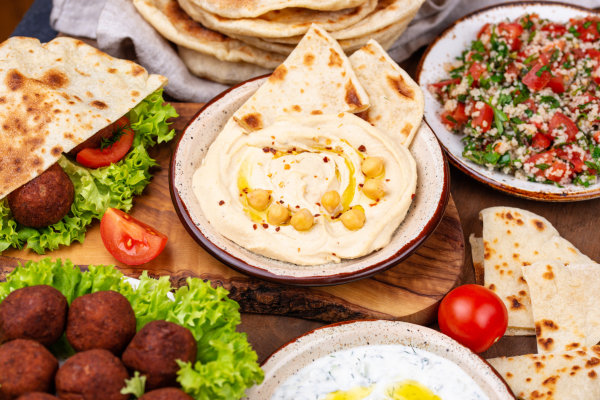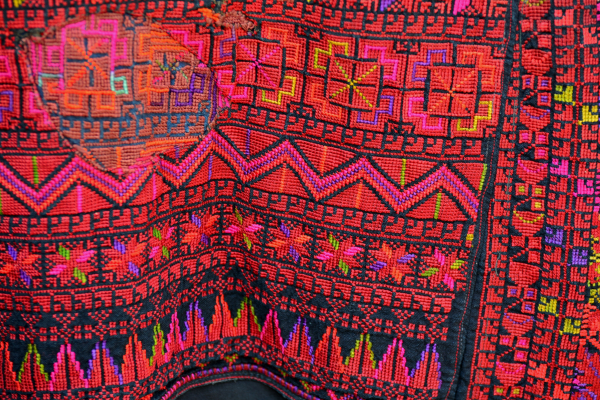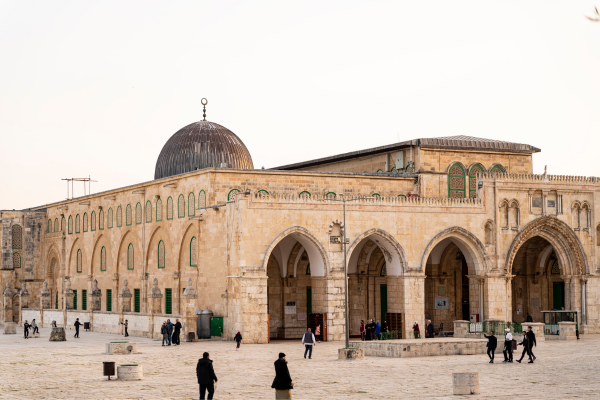Nestled in the heart of the Middle East, Palestine is not just a land of mesmerizing landscapes and ancient history but also a place where culinary traditions have been cherished and passed down through generations. Palestinian cuisine is a testament to the region's diverse cultural heritage, reflecting a fusion of flavors, techniques, and stories that have stood the test of time. From aromatic spices to mouthwatering dishes, let's take a delightful journey through the traditional foods of Palestine and uncover their profound cultural significance.
1. Hummus: The Beloved Dip

No exploration of Palestinian cuisine is complete without mentioning hummus. This creamy blend of chickpeas, tahini, olive oil, garlic, and lemon juice is a staple in Palestinian households. It symbolizes more than just a delicious appetizer; it represents unity and shared culture. Families often gather around a table to enjoy freshly made hummus, served with warm pita bread, as a gesture of hospitality and togetherness.
2. Maqluba: The Upside-Down Delight

Maqluba, meaning "upside-down" in Arabic, is a traditional one-pot dish that showcases a beautiful medley of flavors. Layers of rice, vegetables (such as eggplant, cauliflower, carrots, potatoes), and either chicken, lamb, or beef are cooked together, then flipped upside down when served. This dish embodies the essence of Palestinian generosity, often prepared for festive occasions or when welcoming guests into the home.
3. Musakhan: A Celebration of Flavors

Musakhan is a dish that encapsulates the essence of Palestinian cuisine. Roasted chicken marinated in sumac, onions, and olive oil is laid on a bed of flatbread and topped with toasted pine nuts and sumptuous caramelized onions. This flavorful creation not only satisfies the palate but also holds cultural significance, symbolizing the connection to the land through its locally sourced ingredients.
4. Falafel: The Timeless Street Food

Though falafel is popular across the Middle East, Palestinians have their own unique way of preparing these crispy, golden-brown chickpea balls. Served in a pocket of freshly baked bread with a variety of toppings like tahini sauce, fresh vegetables, and pickles, falafel represents a beloved street food tradition. It's not just a quick bite; it's a culinary emblem deeply embedded in Palestinian food culture.
5. Baklava: The Sweet Finale

No Palestinian meal is complete without a touch of sweetness, and baklava fits the bill perfectly. Layers of paper-thin pastry filled with chopped nuts, sweetened with syrup or honey, create a dessert that's both decadent and symbolic. Baklava often graces celebratory tables, symbolizing joy, prosperity, and the sweetness of life itself.
Cultural Significance: A Culinary Heritage

Beyond their delicious flavors, Palestinian foods are a testament to resilience, heritage, and community. These dishes are intertwined with stories of family gatherings, traditions passed down from ancestors, and a deep-rooted connection to the land. The ingredients used, such as olive oil, za'atar, and spices, not only add taste but also represent the agricultural abundance and local produce of Palestine.
In a world where food is more than sustenance, Palestinian cuisine stands as a cultural ambassador, sharing stories, fostering unity, and inviting people to experience the richness of tradition through each savory bite.
As we savor the flavors of Palestine, let's also recognize and celebrate the cultural significance that these traditional foods hold—a celebration of resilience, community, and a heritage that continues to thrive through the art of cooking and sharing meals.



